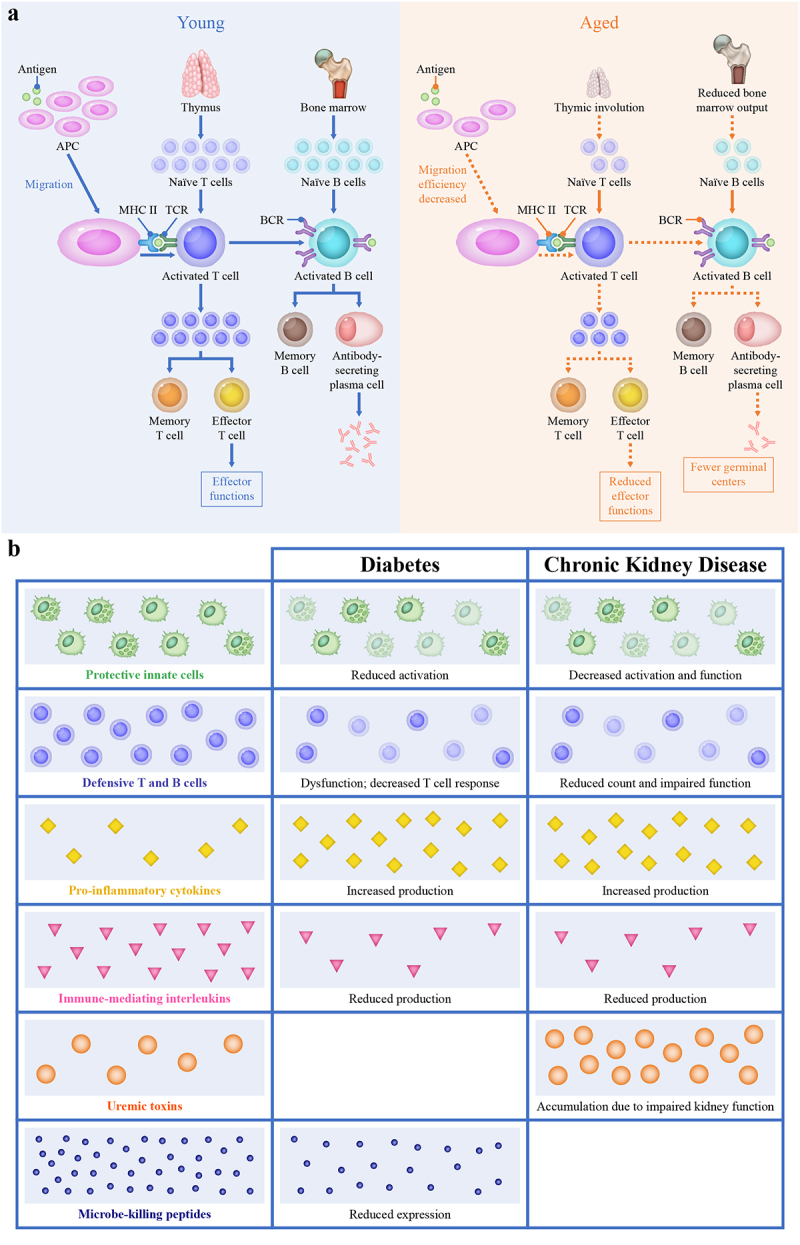Figure 1.

Immunologic differences in (a) older individuals and (b) those with chronic diseases.
a) The effect of aging on the immune response.33 The immune system becomes compromised and dysfunctional with increasing age (immunosenescence), due to a decline in key immune cells that regulate innate and adaptive immune responses.33 In the older population, the efficiency of APC migration is reduced along with the ability of APCs to form stable contacts with T cells. This results in poor activation and differentiation of T cells. The thymic output is reduced in older patients due to thymic involution that occurs with age, and bone marrow output is also adversely affected with age, leading to a decrease in T-cell and B-cell populations and reduced downstream effects.33 All these factors have a significant negative impact on the immunity of aged individuals.
b) Potential mechanisms for immune impairment in patients with diabetes and CKD.16,23,24,34,35 Similarly, the immune system can also become comprised in patients with chronic diseases.16,23,24,34,35 Hyperglycemia in diabetes affects the innate immune system by reducing the production of type I interferon and interleukin-22, which are involved in antiviral activity, chronic inflammation and insulin sensitivity.16,24 Altered immune responses in patients with CKD, such as a reduction in T and B cells and increased pro-inflammatory cytokines, leave patients more susceptible to infection.23,35 Infections, such as influenza, increase the risk of adverse coronary and cardiovascular events via direct and indirect mechanisms on the vasculature.34 Together, this increases the risk of worse outcomes for patients with diabetes and CKD.
APC, antigen-presenting cell; BCR, B-cell receptor; CKD, chronic kidney disease; MHC, major histocompatibility complex; TCR, T-cell receptor.
